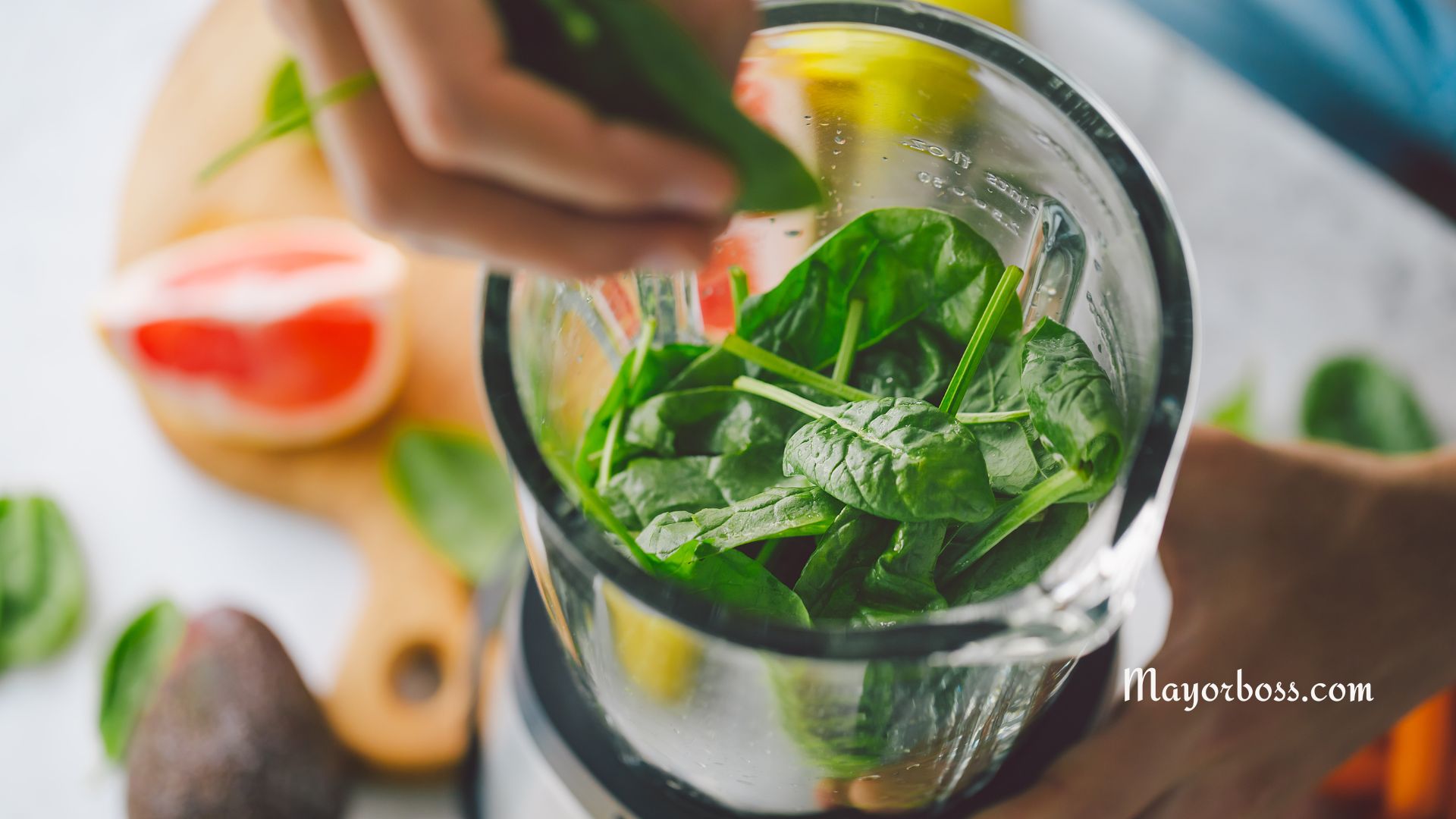13 Foods to Avoid to Reduce Cancer Risk
When it comes to cancer prevention, what you eat can significantly impact your health. While generally, no single food can cause or prevent cancer on its own, research suggests that a healthy diet overall—rich in fruits, vegetables, and whole grains and low in processed foods—can help lower your risk. But are you aware that certain foods might actually increase your risk of developing cancer? Yes, it’s true. Let’s take a closer look at which foods you might want to limit or avoid to keep your risk as low as possible.

Processed Meats
Processed meats like hot dogs, canned meat, sausages, bacon, and lunch meats contain preservatives that can be harmful. They are often preserved by smoking, curing, or salting, or with chemical preservatives. These methods can create harmful compounds that might increase your cancer risk.
Recent research reinforces the concerns regarding the consumption of processed meats and their link to an increased risk of colorectal cancer. A study from the American Institute for Cancer Research and the World Cancer Research Fund highlighted that consuming processed meats like hot dogs and bacon could increase colorectal cancer risk, with a 16% increase for every 50 grams consumed daily.
Similarly, another comprehensive analysis involving more than 17 million participants found a clear association between the consumption of red and processed meats and an elevated risk of various cancers, including colorectal, breast, and pancreatic cancers.
Sugary Drinks
High consumption of sugary drinks can lead to obesity, which is a known risk factor for several types of cancer, including endometrial, esophageal, and pancreatic cancer. These drinks often provide a lot of calories with little nutritional value.
Overcooked Foods
Cooking foods, especially meats, at high temperatures or burning them can produce carcinogenic substances like acrylamide and heterocyclic amines. It’s best to avoid charring your food and opt for cooking methods that use lower temperatures.
Research has shown the risks associated with heterocyclic aromatic amines (HAAs), which are formed when cooking meats at high temperatures. A study from MDPI’s journal Foods found how these compounds are created during the Maillard reaction, which occurs when meat is cooked at temperatures typically above 150 °C.
These conditions are common in cooking methods like grilling or frying. HAAs are recognized for their potent mutagenic and carcinogenic properties, significantly stronger than many other known carcinogens like aflatoxins and benzopyrene.
Another study published in Genes and Environment examined the intake of HAAs among Japanese populations, noting that dietary habits and cooking methods could influence HAA levels. For instance, lower HAA intake was observed in regions where grilling was less prevalent.
This study also reviewed epidemiological evidence, which did not find a significant direct link between HAA intake and colorectal cancer in a specific Japanese case-control setup, though it acknowledged the carcinogenic potential of HAAs based on broader research.
Excessive Alcohol
Regular and excessive alcohol consumption is commonly linked to a higher likelihood of cancers in the mouth, liver, breast, colon, and rectum. Moderation is key here—if you drink alcohol, limiting your intake can help reduce your cancer risk.
Highly Salted Foods
Foods high in salt, including many processed and prepared foods, can increase the risk of stomach and other cancers. Reducing your salt intake isn’t just good for your heart but also for reducing cancer risk.
White Bread and Refined Grains
Refined grains, such as those found in white bread, white rice, and pastries, have had most of their fiber and nutrients stripped away. They contribute to higher blood sugar and insulin levels, which may be linked to some cancers, such as pancreatic cancer. Consider switching to whole grains like whole wheat, quinoa, and oats, which are not only healthier but also help you feel fuller longer.
Hydrogenated Oils
Hydrogenated oils are often used in processed and fried foods. They contain trans fats, which have been linked to increased odds of colorectal and other types of cancer.
Studies show the significant health risks associated with the intake of trans fatty acids (TFAs), particularly from hydrogenated oils, which have been linked to an increased likelihood of various types of cancer, including colorectal and breast cancer.
A systematic review and meta-analysis published in 2023 examined the relationship between dietary and tissue TFAs and colorectal cancer risk. The review pointed out the pro-inflammatory properties of TFAs and their negative impact on metabolism, which could contribute to cancer development. Additionally, research from BMC Medicine found that higher dietary intake of industrial TFAs was associated with an elevated risk of breast cancer, reinforcing concerns about the harmful effects of these fats.
Moreover, while trans fats are primarily known for their cardiovascular risks, their association with cancer is increasingly being recognized in the scientific community. This has led to stricter regulations and even bans on trans fats in many countries, aiming to reduce the public health impact of these harmful substances. (Via American Institute for Cancer Research)
Artificial Sweeteners
While not directly linked to cancer, artificial sweeteners can lead to weight gain and metabolic disorders when consumed in large amounts, indirectly increasing cancer risk.
Red Meat
While red meat is a good protein source, excessive intake has been linked to an increased likelihood of colorectal, pancreatic, and prostate cancer. Moderation is recommended.
Many scientific research worldwide show that eating a lot of red meat might increase the risk of some cancers. One study found that red meat could be linked to stomach and other cancers in the gut. Another study connected high red meat eating with a higher chance of getting pancreatic cancer. These studies suggest that eating less red meat could help lower the risk of these cancers.
Farmed Fish
Farmed fish often contain higher levels of chemical pollutants that can affect human health compared to wild-caught fish. These chemicals have the potential to contribute to cancer risk.
Microwave Popcorn
Microwave popcorn bags often contain perfluorinated compounds (PFCs), which help prevent oil from soaking through the bag. When heated, these compounds can break down into perfluorooctanoic acid (PFOA), a substance linked to various health issues, including cancer, in animal studies. Air-popping your popcorn eliminates these risks and is a healthier alternative.
Fast Food
Frequent consumption of fast food can, in fact, lead to poor nutrition and obesity, which is a significant cancer risk factor. Fast foods are often high in calories, fats, and sugars.
Canned Foods
Many canned foods contain bisphenol-A (BPA), a chemical that can leach into food. Some studies suggest that BPA exposure can lead to cancer, although the evidence is still evolving.
Frequently Asked Questions
1. Does eliminating these foods completely guarantee cancer prevention?
No, eliminating these foods can reduce risk but not guarantee prevention. It’s also important to focus on a balanced diet and healthy lifestyle choices.
2. Are there any safe cooking methods to reduce cancer risk?
Yes, cooking methods like steaming, boiling, or baking at lower temperatures can decrease the formation of harmful compounds.
3. How often can I safely consume these foods?
It depends on the food, but moderation is generally key. For red meat, for instance, it’s recommended to limit intake to a few times per week and consider portion sizes.






